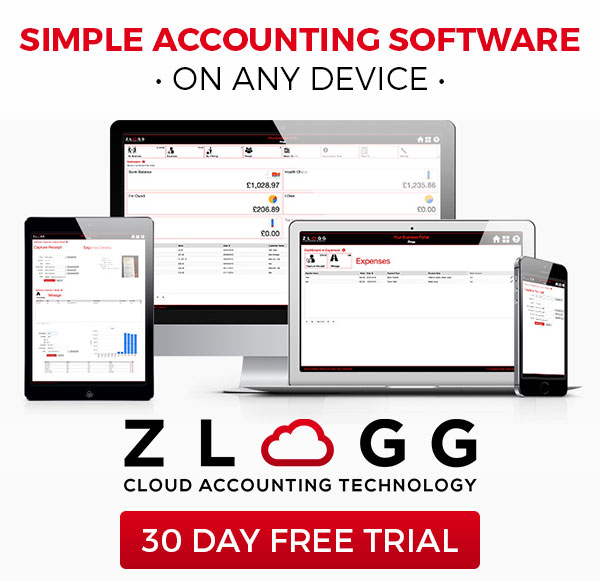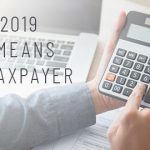What you need in order to get a Mortgage when Self-Employed
If you’re self-employed and looking to get a mortgage then here is a definitive list of all the things you’ll need in order to have the best chance of getting your home.
Self-Employed Mortgage
So let’s just kick off with a quick piece of information to dispel a slight misconception many self-employed people have. There is technically no such thing as a ‘self-employed mortgage’. If you’re self-employed then you’ll be applying and be assessed for a mortgage just the same as if you were on PAYE which is why it’s so important to ensure you have all of the following items when looking to apply for a mortgage when self-employed.
3 Years of HMRC Tax Returns
When applying for a mortgage as a self-employed person, it is your HMRC Tax Return which they’ll use as proof of your income. But here’s the catch, they only count your income as your profit. Not your total income. So you may have an overall income (turnover) of a comfortable £40k per year, but once all of your expenses etc are deducted from your tax return, this number will fall dramatically and it’s this minute detail which catches out most self-employed people. This is why it’s imperative that if you know you’re going to be looking to get a mortgage within the next few years, then you need to be ‘good’ with your tax returns for three years
What do I mean by ‘good’? Well we all know one of the key benefits of being self-employed is that you can claim numerous expenses against your tax bill each year, which is great to keep your tax payments down. However here’s where the problem arises, because if you have a good accountant (or know what you’re doing personally!) then it’s likely you will be claiming as many expenses as possible within your tax return, and rightly so! However this is where the numbers go against you. Every expense you claim for, you are (in principal) deducting that amount from your business income and therefore it makes your overall profit look VERY low – and it’s the profit the mortgage brokers are looking at.
For example I have a client who earns a typical turnover of £30k per year. However, as his accountant, by the time I have deducted all of his allowable business expenses and bought his tax bill down, his final profit is just over £10k – so in this case the HMRC would look at his tax return and only take into account the £10k and NOT the overall £30k. This of course is no where near enough of an income to get a typical mortgage with a standard deposit and therefore is the biggest thing to look out for when applying. So when I say ‘good’ just try to keep claimed tax expenses to a bare minimum for three years and ensure your profit figures are looking healthy for the mortgage broker.
Also it’s worth noting here that most mortgage brokers no longer ask you to provide them with copies of your tax returns. Instead they usually just go directly to the HMRC to check your numbers.
3 Years of Business Accounts
As well as your HMRC Tax Returns, a mortgage broker generally likes to see proof of your business income and outgoings so they can better assess how your business finances work and reference what is being listed in your tax returns. So just be sure to have a copy of your business accounts for the past 3 years in case the broker asks for them.
These can generally be downloaded/printed directly from your online business banking account, or alternatively most banks will provide you with paper copies or email you digital copies if you request the certain dates and explain it’s for the purpose of a mortgage.
Proof of Regular Work
This ties in with your 3 years of business accounts however it’s worth having additional copies of invoices to hand which clearly show you have had regular work for the past 3 years and will continue to do so for as long as you have the mortgage.
In simple, you want to provide the mortgage broker with as much proof as possible to show you will always be able to pay your mortgage. So find whatever additional documents you can find to prove your regular income.
Good Credit Score
When going for a mortgage you’re generally asking for a LOT of money, therefore every mortgage broker wants to check that you have a good credit score in order to prove that you can be trusted to borrow this much money and wont have any issue making mortgage payments every-month.
Because of this, they will run quite an extensive credit check on you personally – so at least one year before going for your mortgage you need to make sure you have a good credit score. Why one year? Because if you have a bad credit score for any reason then one year is enough time to quickly solve the issue and get your credit rating back up again. If you have a bad credit rating there is VERY little chance you’ll get a mortgage so it’s imperative that you ensure your credit rating is high.
To check this just sign up to a credit check score like Experian and check your credit rating is healthy (within the top 800+ range). I’m not going to go in-depth about credit scores now but just be aware that there are many factors which can effect your credit rating, even simple things such as an unpaid phone bill can make you have bad credit. So be sure to thoroughly check this before applying for a mortgage.
6 Months of ‘Good Spending’
This is a biggie and something many people forget about when going for a mortgage. Common practice now when going for a mortgage is that brokers will want to look at your spending habits within your personal bank account for the past 6 months. I know this seems slightly ‘Orwellian’ but it’s just another measure the brokers are taking to ensure they give mortgages to the right people (especially since the financial crisis of 2008).
So again, you’ll need copies of your bank accounts but this time it’ll be your personal bank accounts for 6 months, not your business bank account. Here, the brokers will be quite strict on what regular outgoings you have (bills etc), and what you typically spend in a month on food and personal shopping etc. In simple they are looking to check that your income can comfortably cover your outgoings. This is focused on ensuring you can pay for essentials like bills/food etc and that you’re not a spend-a-holic and clearly have money left over at the end of each month.
Regular monthly outgoings are the key here and you want to get as few monthly outgoings as possible, or at least get them as low-cost as possible. For example if you pay a hefty finance every month on a brand-new car and you’ve just got this finance over the next five years…your chances of getting a mortgage will be quite low to be brutally honest! Because they weigh all regular outgoings against how much you want for your mortgage – so you want to have as few regular monthly outgoings as possible. Preferably you just want the usual bills for electricity, water, gas and phone. So if you have any other outgoings that aren’t essential (Netflix, Spotify, Sky TV etc) then my advice would be to get rid of them in the meantime whilst you get the mortgage, then re-subscribe again if you really can’t live without them once you’re moved in!
Also just be wary of what you spend out on generally, don’t buy anything too expensive to raise alarm bells and try to stop any sort of spending that could be seen as ‘regular’ e.g. you may ‘do lunch’ with a parent every fortnight and spend £10 on food every two weeks because of it – stop that right away! The one-off small outgoings here and there are fine, but overall you just want to look like the perfect spender for the next 6 months!
If this is all coming as a surprise whilst reading this then you’ll likely be panicking and thinking “oh wow I have been SO bad with my spending lately!” and if this is the case, then as of next month don’t spend anything on unnecessary. Just buy food, petrol and pay the bills. Keep it clean and simple!
Also on a final note, if you happen to use your business account as your personal account or vice versa then my advice would be to stop this now and separate the two. But if it’s too late and you’re going for a mortgage very soon then at least try to help the mortgage broker and highlight the difference between personal spending and business spending.
Healthy Deposit
This really goes without saying but I thought I’d throw it in at the end anyway! You of course need as much money saved up as possible for your mortgage deposit, this should be at LEAST 10% of the total value of the home you’re looking at. Recent research showed that the most successful mortgage applicants put 20% deposits down on their new homes – just as a rough idea.
Of course, if you’re going with a government scheme then you’ll only need the specified deposit amount, for example the ‘Help to Buy Scheme’ enables you to buy a new-build property with only a 5% deposit.
And that ladies and gents is that! Those are the key aspects you’ll need in order to give yourself the best chance of getting a mortgage. Slight disclaimer here – I’m not saying that you are 100% guaranteed to get a mortgage if you have everything I’ve stated. I’m sure there are people who have been lucky enough to gain mortgages with less than I’ve listed here, however I am a true believer in the policy of being over-prepared to ensure the best chance of success with anything. So as long as you have all of the above to hand when applying for your mortgage, you’ll stand a strong chance of getting that mortgage as a self-employed person.














Share On